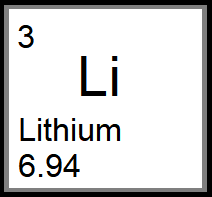Drugs That May Raise Your Risk of Dementia

Alzheimer’s disease and dementia rates are increasing at alarming levels with an estimated seven million individuals in the United States struggling with the condition (Nandi 2024). As a disease, dementia destroys lives, devastates families and causes a huge social, medical and financial burden. Understanding risk factors for dementia and helping to prevent its occurrence are of paramount importance.
One factor that can significantly contribute to dementia, that is often overlooked, are medications. A number of different medications have potentially concerning relationships with dementia.
Anxiety and Sleep Medications
As a drug class, benzodiazepines like Xanax and Valium are used to slow the brain and help with anxiety. I have previously discussed concerns about their use, including issues around cognitive decline and dementia risk. Sleep medications like ambien and lunesta, often called Z-drugs, also raise concerns.
While some of the latest data on the association between these medications and dementia has been mixed (Rivas 2025), evidence suggests that short-acting benzodiazepine and Z-drugs, taken at higher dosages for longer, may still carry significant risks (Torres-Bondia 2022). The more commonly prescribed drugs that have the highest risk include Xanax (alprazolam), Lunesta (eszopiclone) and Ambien (zolpidem).
Pain Medications
Pain medications, including opiates, come with significant challenges due to their addictive potential and side effects. And beyond these well-recognized concerns, opiate pain medications may also raise the risk for dementia.
Similar to benzodiazepines, short-term use of opiate pain medications is likely safer in regards to dementia risks. However, research does suggest that longer use at higher doses may contribute to dementia. An analysis from 2025 of patients on pain medications found that after six years of high-dose opiate use for chronic pain, dementia rates began to increase significantly as compared to patients using less (Yu-Jung 2025). Opiate medications that could incur risks include morphine, oxycodone (Percocet), hydrocodone (Vicodin) and fentanyl among others.
Antidepressant Medications
Depression is an incredibly common condition. As such, it shouldn’t be too surprising that antidepressants are some of the most commonly prescribed medications. Recently, concerns have been starting to surface that antidepressants may increase the risk of dementia or worsen cognitive decline.
A study of 2710 individuals with depression found that those who chose medication over counseling for treatment had a 36% increased risk for developing dementia. The risk seemed to be isolated to those patients over age 65 (Wang 2023).
In a Swedish study of dementia patients, use of antidepressants was associated with faster cognitive decline, fractures and death (Mo 2025). However, other researchers note that antidepressants are often used to treat symptoms of more severe dementia, which may explain at least part of the association (Soon 2023).
Other types of dementia have also been found to worsen over time with antidepressants, even though the medications help to control depression-type symptoms in these patients (Nisar 2021). Overall, it appears likely that antidepressants carry some risk, especially in older populations, and their use should be viewed in combination with this understanding.
Acid-Blocking Medications or Proton-Pump Inhibitors

For a number of years, results have been controversial as to whether or not proton-pump inhibiting medications that are prescribed for heartburn and gastroesophageal reflux contribute to dementia. Due to the fact that these medications block stomach acid production, it’s not unreasonable to conclude that certain nutrients that are critical for brain function, like vitamin B12, may not be as well absorbed (Humphrey 2012).
While you can find studies on both sides, overall, it still appears that concerns are warranted. A study that tracked 30 patients on acid blocking medication and 30 controls showed concerning effects with omeprazole (Prilosec), a common proton-pump inhibitor. Cognitive testing showed clear deficiencies in patients taking the medication, which worsened over time as compared to the controls (Haefliger 2024).
A study on adverse events and proton-pump inhibitors also found a clear safety signal associating the medications with dementia (Wu 2024). A large study out of Germany evaluating over 100,000 patients using proton-pump inhibitors also concluded that the medications are associated with dementia risk (Ahn 2023).
Allergy Medications and Antihistamines
Drugs that block histamine or “antihistamines” are used for treating allergies. For patients taking antihistamine drugs, the higher the daily dose and the longer the use of the medications, the higher the risk for dementia (Su 2024). Older antihistamines like Benadryl (diphenhydramine), Vistaril (hydroxyzine) and Chlor-trimeton (chlorpheniramine) increased dementia risk by 1.5 times in patients with more significant exposure. Newer antihistamines, including Allegra (fexofenadine), Claritin (loratadine) and Zyrtec (cetirizine) weren’t without risk, increasing dementia incidence by 1.25.
A separate study looking at antihistamine use and dementia found that age was also a crucial factor (Yang 2022). The risk with antihistamines was much more prevalent in patients over aged 65. Risk appeared to increase by almost 80% in older individuals.
Conclusion
A number of medications have a suspected relationship with causing or worsening cognitive decline and dementia. Unfortunately, the connection between medications and dementia is often overlooked and patients are uninformed of the potential risks. For any individual concerned about the relationship, talk with your doctor about the need for the medication and any potential alternatives that may not have the same risks.



